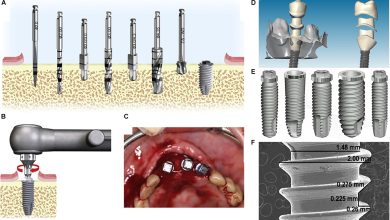What Counts As Major Dental Care: Expert Tips for Optimal Oral Health

Major dental care includes treatments and procedures such as root canals, extractions, dental implants, and gum surgeries. Having good oral health is essential for overall well-being.
Regular dental check-ups and preventive care like routine cleanings and fillings can prevent minor issues from developing into major dental problems. However, despite good oral hygiene practices, sometimes major dental issues can arise. When such problems occur, it often necessitates major dental care.
This type of care includes a range of treatments and procedures that go beyond routine maintenance, such as root canals to save infected teeth, extractions for severely damaged teeth, dental implants to replace missing teeth, and gum surgeries to address periodontal disease. Understanding what constitutes major dental care is crucial for maintaining oral health and seeking appropriate treatment when needed.
Understanding Major Dental Care
Major dental care refers to the complex dental procedures that are necessary for the treatment and management of various dental conditions. It involves extensive treatment and often requires specialized skills and equipment. Major dental care is typically carried out by a specialist dentist, such as an oral surgeon, endodontist, or periodontist.
Major dental care includes procedures like oral surgery, such as wisdom tooth extraction or dental implant placement. It also involves endodontic treatments like root canal therapy for infected or damaged nerves inside the tooth. Other major dental procedures include periodontal surgeries for the treatment of advanced gum disease, dental crowns to restore and protect damaged teeth, and bridges or dentures to replace missing teeth.
| Major Dental Care | Routine Dental Care |
| Complex dental procedures | Preventive measures and common treatments |
| Treatment of specific dental conditions | Maintaining overall oral health |
| Performed by specialized dentists | Performed by general dentists or dental hygienists |
| Requires extensive treatment and specialized skills | Regular check-ups, cleanings, and fillings |
In conclusion, understanding the distinction between major dental care and routine care is crucial when it comes to determining the scope and importance of various dental treatments. Major dental care involves complex procedures performed by specialists, while routine care focuses on preventive measures and maintaining overall oral health.
Expert Tips For Optimal Oral Health
When it comes to maintaining good oral health, daily oral hygiene practices play a significant role. These practices include brushing your teeth twice a day with fluoride toothpaste, flossing daily to remove plaque from hard-to-reach areas, and using a mouthwash to freshen breath and kill bacteria. Additionally, incorporating a healthy diet rich in fruits, vegetables, and low in sugary and acidic foods is crucial.
In addition to daily oral hygiene practices, regular dental check-ups are equally important. These routine visits allow a dentist to assess your dental health and identify any potential issues at an early stage. During a check-up, a dentist will perform a comprehensive examination, cleaning, and X-rays if necessary.
By committing to these habits, you are taking proactive steps to ensure optimal oral health. Don’t neglect your oral care – make it a priority and enjoy the benefits of a healthy smile.
Common Major Dental Procedures
Major dental care includes a range of procedures aimed at restoring or replacing damaged or missing teeth. Dental implants are a popular solution for missing teeth. Implants provide a durable and natural-looking replacement tooth root, which is surgically placed into the jawbone. This allows for the attachment of an artificial tooth, providing a permanent solution for tooth loss.
Another common major dental procedure is root canal treatment. This procedure is performed when a tooth is severely damaged or becomes infected. The pulp inside the tooth is removed, and the tooth is then cleaned and sealed to prevent further damage or infection. Root canal treatment is an effective way to save a damaged tooth and prevent the need for extraction.
Dental crowns are commonly used to restore severely damaged or weakened teeth. A crown is a custom-made cap that is placed over the tooth to protect it and restore its shape, size, strength, and appearance. Dental crowns can be made from various materials, including porcelain, metal, or a combination of the two, depending on the specific needs of the patient.

Credit: hawthornwoodsfamilydentalcare.com
Frequently Asked Questions Of What Counts As Major Dental Care
What Is An Example Of A Major Dental Service?
A root canal treatment is an example of a major dental service. It helps to repair and save a severely damaged or infected tooth. The procedure involves removing the infected pulp, cleaning the area, and filling it with a special material to prevent future infections.
Are Cavities Considered Basic Or Major Dental Care?
Cavities are considered basic dental care, not major.
What Dental Condition Would Require A Restorative Dental Treatment?
A dental condition that would require restorative dental treatment is tooth decay, broken or chipped teeth, or tooth loss due to injury or disease. Restorative treatments like fillings, crowns, bridges, and dental implants help restore the function and appearance of damaged or missing teeth.
Which Of The Following Does Restorative Dental Treatment Cover?
Restorative dental treatment covers procedures like dental fillings, crowns, bridges, and implants that repair, restore, or replace damaged or missing teeth.
Conclusion
To sum up, understanding what constitutes major dental care is crucial for maintaining oral health. From complex procedures like root canals and extractions to treatments for gum disease and jaw surgery, it’s important to recognize when specialized dental care is needed.
By seeking professional help and staying diligent with oral hygiene, individuals can ensure long-term dental wellbeing. Regular dental check-ups are key to catching any issues early on and preventing them from becoming major problems. Remember, your smile is worth the investment!





